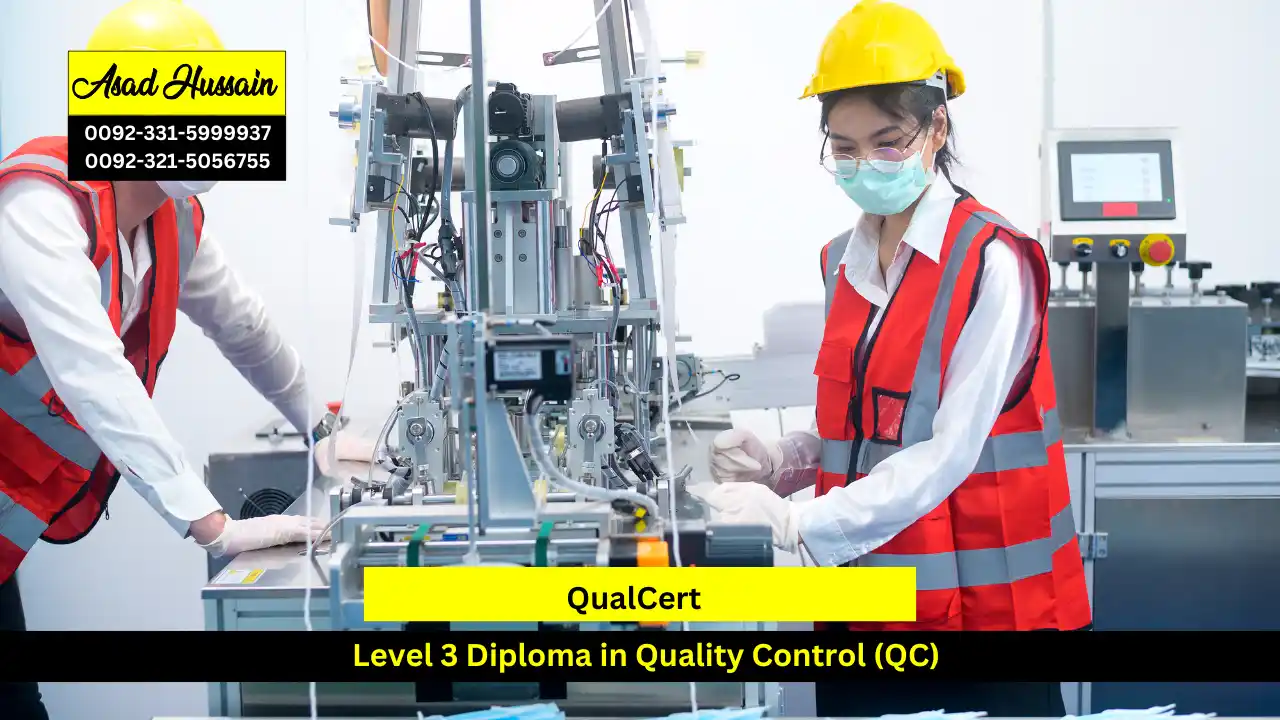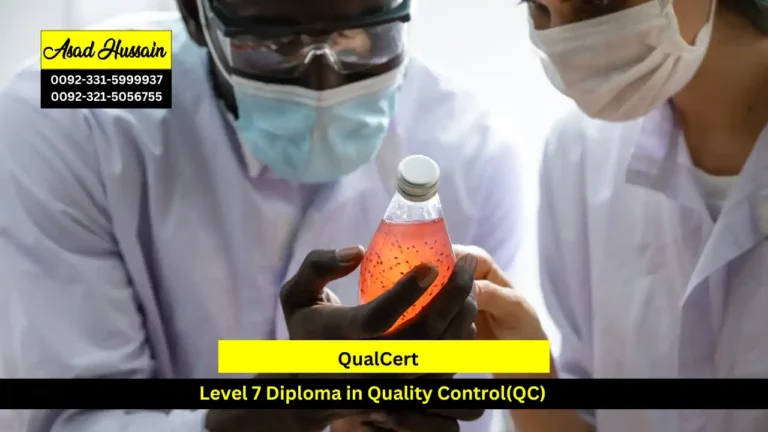In the competitive landscape of today’s industries, ensuring high standards of quality is paramount. Whether in manufacturing, healthcare, food production, or any other sector, maintaining consistent quality can be the difference between success and failure. The Level 3 Diploma in Quality Control (QC) is designed to equip professionals with the skills and knowledge needed to ensure excellence in their respective fields.
Quality Control is a systematic process that ensures products and services meet specified standards and customer expectations. It involves the continuous monitoring and testing of processes and outputs, identifying any deviations from standards, and implementing corrective measures. QC is integral to maintaining the integrity of products, boosting customer satisfaction, and enhancing overall business performance.
The Level 3 Diploma in Quality Control is an invaluable qualification for anyone passionate about maintaining high standards and driving excellence in their field. It offers a pathway to a rewarding career in quality assurance, equipping professionals with the skills needed to make a significant impact. For businesses, investing in QC training for their employees is a strategic move towards achieving superior quality, efficiency, and customer satisfaction.
Program Highlights
Mandatory Units
Module 1: Advanced Quality Control Concepts.
Module 2: Advanced Quality Control Tools and Techniques.
Module 3: Industry-Specific Quality Standards.
Module 4: Precision Measurement and Inspection Techniques.
Module 5: Advanced Problem-Solving and Decision-Making.
Module 6: Statistical Analysis and Experimental Design.
Module 7: Quality Management Systems (QMS).
Module 8: Advanced Documentation and Reporting.
Module 9: Safety and Quality Integration.
To enroll in the Level 3 Diploma in Quality Control course, participants typically need to meet the following entry requirements
- Educational Background: Typically, participants should have a high school diploma or its equivalent (such as a GED). Some programs may require a minimum level of education, such as completion of secondary education, to ensure participants have basic academic skills.
- Language Proficiency: Proficiency in the language of instruction (usually English) is essential to comprehend complex course materials, actively participate in discussions, and complete written assignments.
- Age Requirement: Participants must be at least 18 years of age to enroll in this course.
- Industry Experience: While not always required, some programs may prefer or recommend that participants have some prior industry experience related to the field they intend to study. This can provide valuable context for understanding quality control principles.
- Level 2 QC Diploma (Recommended): While not mandatory, completion of a Level 2 QC Diploma or equivalent foundational training is highly recommended.
Introduction to Quality Control
- Understand the fundamental concepts and importance of Quality Control in various industries.
- Identify the role and responsibilities of a Quality Control professional.
- Explain the impact of Quality Control on product and service excellence.
Quality Management Systems
- Describe the components and benefits of Quality Management Systems (QMS) such as ISO 9001.
- Implement and maintain a QMS within an organization.
- Conduct internal audits to ensure compliance with QMS standards.
Statistical Quality Control
- Apply statistical methods to monitor and control product quality.
- Interpret statistical data to identify quality trends and variations.
- Utilize control charts and other statistical tools to maintain quality standards.
Inspection and Testing
- Perform various inspection techniques to assess product quality.
- Conduct tests to ensure products meet specified standards and requirements.
- Document and report inspection and testing results accurately.
Continuous Improvement
- Understand the principles of continuous improvement and its significance in Quality Control.
- Implement methodologies like Six Sigma and Lean to enhance quality processes.
- Identify opportunities for quality improvements and develop action plans to address them.
Root Cause Analysis and Corrective Actions
- Conduct root cause analysis to identify the underlying causes of quality issues.
- Develop and implement corrective actions to prevent recurrence of quality problems.
- Monitor the effectiveness of corrective actions and make adjustments as necessary.
Quality Control Tools and Techniques
- Utilize various Quality Control tools such as Pareto charts, Fishbone diagrams, and flowcharts.
- Apply these tools to identify, analyze, and solve quality-related problems.
- Integrate Quality Control tools into everyday QC practices for continuous quality improvement.
Regulatory and Compliance Requirements
- Understand the regulatory and compliance requirements relevant to Quality Control in different industries.
- Ensure organizational practices align with industry standards and regulations.
- Prepare for and participate in regulatory inspections and audits effectively.
Documentation and Record Keeping
- Maintain accurate and detailed quality records and documentation.
- Ensure traceability of products and processes through proper record-keeping.
- Utilize documentation to support quality audits and continuous improvement initiatives.
Teamwork and Communication in Quality Control
- Collaborate effectively with team members and other departments to achieve quality objectives.
- Communicate quality issues and solutions clearly and effectively.
- Foster a culture of quality within the organization through teamwork and effective communication.
The Level 3 Diploma in Quality Control (QC) is designed for individuals aspiring to build a career in quality assurance and control across various industries. It is ideal for those already working in QC roles who wish to formalize their skills and knowledge with a recognized qualification. Additionally, this course is suited for professionals in related fields such as manufacturing, healthcare, food production, and engineering who seek to enhance their understanding of quality control processes and practices. Entry-level candidates who are passionate about maintaining high standards and contributing to organizational excellence will also find this course beneficial. Whether you are looking to advance in your current role or embark on a new career path in QC, this diploma provides the essential foundation and practical skills needed for success.







